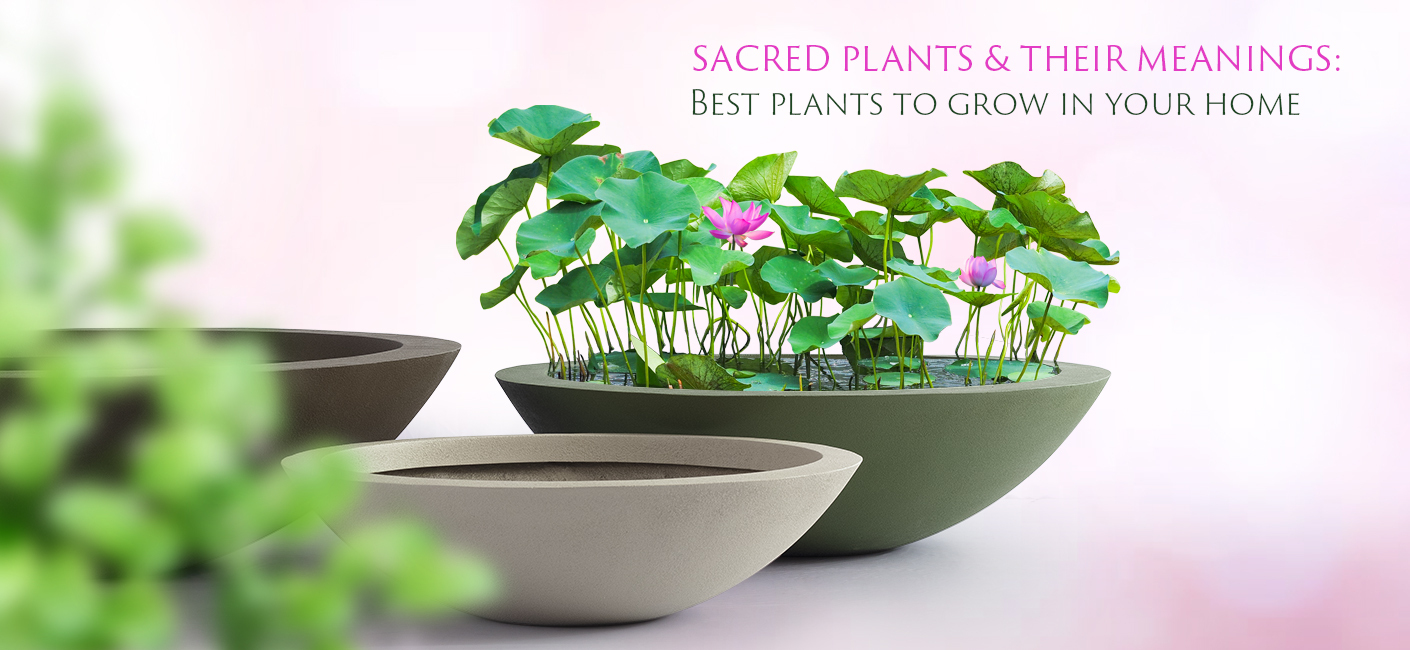Plants are a sacred part of humanity and the biological world. Ancient people, though civilized in their own right (like in ancient India, China, or anywhere else), did not have the technology to understand ecology as a whole; nevertheless, they did not fail to understand the worth of vegetation.
In the modern age, we understand the importance of plants, and thus, their sacredness is evident to us in the context of ecology, even in our own homes. People keep sacred plants at home using Indoor Planters for holistic benefits.
Advantages of Sacred Plants
Though the majority of sacred plants fall under the Dharmic religions (also known as Indic religions, like Hinduism, Buddhism, etc.), different other faiths around the world, like different indigenous religions and Christianity, have sacred plants of their own. Sometimes, plants are considered holy because they are essential to culture, like the General Grant Tree in California, USA, which was declared a National Shrine by President Eisenhower in memory of war veterans.
- Ecological balance: Whether you keep plants at home or any place else, the environmental benefits of plants can’t be underestimated because plants perform photosynthesis, which releases oxygen and absorbs carbon dioxide, and thus you are contributing to decreasing your carbon footprint.
- Health benefits: Different plants have different health benefits, for example. Some have medicinal value, like tulsi, whose leaves, when eaten, can boost the immune system. Other plants, such as those with a fragrance that can cause relaxation, are beneficial for the heart and lungs. Some plants also have insect-repellent properties, and by keeping them at home, you can repel harmful insects like mosquitoes.
- Aesthetic value: When you keep plants at home, they look good, and when you keep them in a proper, groomed way, placing them in the right place, the aesthetic value of plants increases many times. And it is a well-known fact that if anyone is placed in an untidy place, levels of efficiency, productivity, etc., are low, and the converse is also true meaning making a place aesthetically pleasing will increase efficiency and productivity for the people working in that place.
- Spiritual values: Depending on your religion, sacred plants have different spiritual significances. By having sacred plants around you, you can harness their spiritual energy, ensuring proper harmony and calmness. Besides, plants absorb pollutants and toxins from the atmosphere, making the region calming, soothing, and relaxing, providing physical and psychological benefits.
- Cultural significance: Different plants are essential to culture, even if they are not that important to your religious beliefs. National plants, national flowers, and other flora are culturally important, and thus, keeping them near you might make you enthusiastic, energetic, and patriotic.
Having plants near your home is positive, but not all plants are meant for indoor use, even if they are sacred. The reasons might be their high growth rate and gigantic mature size (like the banyan tree) or their tendency to attract certain insects. So, when you decide to get a plant indoors, it is essential to get recommendations about the ideal plant for your situation. Often, planters who supply plants can give you excellent suggestions.
Sacred Plants and their Popularity
There are different sacred plants. Some are suitable for indoor use, while others are not.
- Tulsi: In Hindu mythology, tulsi is one of the most auspicious plants related to Bhagwan Vishnu, Devi Laxmi, and Bhagwan Krishna. Its leaves are used in various religious rituals and have medicinal properties, such as strengthening immunity. For these reasons, nearly all Hindus keep tulsi plants at home.

The reference for the above image is from here.
- Peepal: This giant tree, known as aswath in Sanskrit, provides a considerable amount of oxygen throughout the year, which has immense ecological benefits. It is spiritually essential not only to Hindus but also to Buddhists.
Peepal is often found in temples, but due to its vast size, it is not suitable for indoor use, though it can grow outdoors. According to Buddhism, Buddha attained Moksha under peepal at Gaya, and according to Hinduism, peepal is the abode of Devi Laxmi and Bhagwan Krishna. The Bhagwat Gita describes peepal as a very respectable tree. - Sandalwood: Sandalwood is considered highly auspicious. It has a pleasant fragrance and is used in many religious activities. It is a calm and soothing plant with a positive spiritual aura. However, it can grow significantly larger, making it less useful for outdoor use than for indoor use.
- Lotus: The lotus is India’s national flower and is very important in religious ceremonies. It is used to worship Devi Durga. The lotus is often a symbol of spiritual awakening. The lotus is associated with Bhagwan Vishnu and is depicted in Hindu and Buddhist arts.

The reference for the above image is from here.
- Kadamba: The Kadamba tree is associated with Bhagwan Krishna and also Devi Durga. It is said that Shri Krishna played flute in the shades of the Kadamba tree.
There are various other sacred trees. However, an expert can recommend holy plants that you could place indoors.
Final Words
Plants are beneficial to the ecology and can positively affect your home by releasing oxygen, repelling insects (some plants), etc. Nowadays, by using FRP planter pots, you can have a variety of plants indoors, while adding more glamour and sheen to your home.
